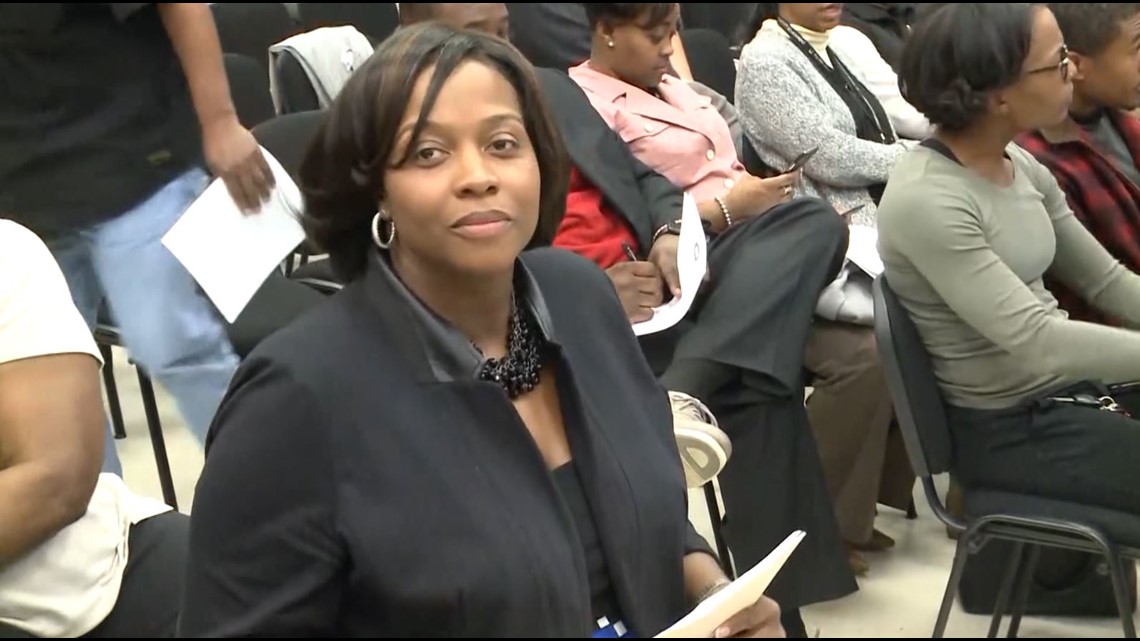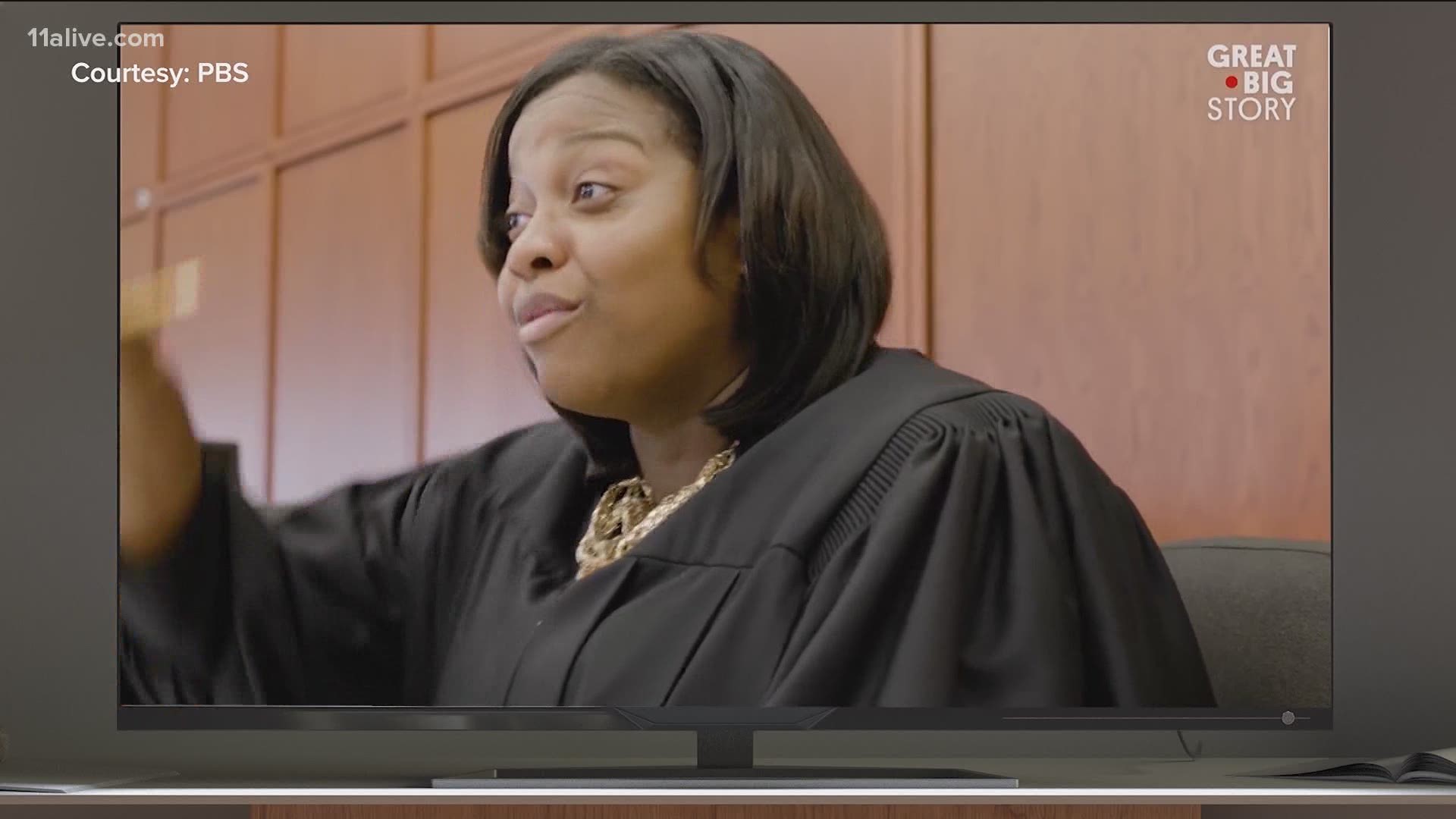FULTON COUNTY, Ga. — On nearly every online campaign event over the past six months, Tiffany Sellers has boasted about her platform she calls the three "Es."
“The court should be efficient, effective and operate in excellence,” said Sellers in an April candidate forum.
Sellers says she plans to turn than motto into her mission if elected as a Fulton County Superior Court Judge on Tuesday.
The 39-year-old attorney is currently a part-time municipal court judge for the cities of Forest Park and Riverdale.
While she has received wide support through endorsements from prominent Atlanta African-American current and former lawmakers, an 11Alive Reveal investigation uncovered the judicial candidate has a long history of legal and financial problems of her own.
About two years ago, Sellers served as the city of South Fulton’s first chief magistrate court judge. At the time, it was the first judicial system in the country run by all African American women.
“I think it was the solicitor who walked into the meeting and said, oh, black girl magic,” said Sellers in a Zoom interview with the Reveal.
The picture of them together was a viral sensation. “We all went right back to work and I woke up one day and it was on CNN,” she said.
A short time later, reality show producers started calling.
“I wanted to show people what excellence can look like. I wanted to show what grace and mercy and rehabilitation all can look like,” said Sellers.
The TV show never took off and her honeymoon on the bench was short-lived.
In March 2019, the city of South Fulton’s city council voted six to one to fire her after staff complained she allegedly bullied them, something Sellers denies.
She sued the city and settled out of court for an amount she said she was “really pleased with.”
While Sellers is satisfied with her tax-payer funded settlement, there are plenty of people displeased with her for failing to pay off debts.
History of Financial Debt
Since 2014, Fulton County court records show she’s been sued at least 10 times for not paying court reporters, contractors and people who have given her personal loans – totaling about $144,295. That includes breaking a lease for office space she rented in a high-rise off Peachtree Street downtown Atlanta.
Discovery Litigation Services is one of them. The court reporting company sued Sellers for not paying the company about $11,777 for work in 2016.
Someone in Passaic, New Jersey, named Louise Davidson, sued Sellers in 2015 for failing to pay back a personal loan for about $10,300.
“The agreement was that the loan would be paid in 30-45 days. [Sellers] now claims she cannot repay the loan,” said Davidson in the court filing.
Sellers also filed for Chapter 13 Bankruptcy protection in 2013 with more than a half a million dollars in debt.


William Perry is the executive director of Georgia Ethics Watchdogs. While he doesn’t fault candidates for having financial issues in the past, he sees Sellers’ lawsuits as a pattern of bad decision making.
“Judges need to make very good decisions. So, I think it’s important for the people of Fulton County when they’re voting to know the bad decisions that have been made by this candidate,” said Perry.
Judge Sellers Responds
Sellers says the lawsuits and bankruptcy filings are linked to losing a job in 2013. “I have made no qualms that I wasn’t born privileged,” said Sellers. “I am in works with all of those creditors to work those out to pay those back. I fully intend to pay those debts.”
Like most positions on Tuesday’s ballot, the majority of the qualifications to run for superior court judge in Georgia are tied to residency, nothing about their financial or legal history. Candidates must also have practiced law for at least seven years.
Perry worries Sellers’ legal trouble could bleed into her public service if elected. “Sure, people make one or two mistakes in their past, but when you have ten-plus lawsuits against you, I think you need to get your own house in order before you try to get a job, the job as a judge in the courthouse,” said Perry.
Sellers disagrees.
“I think what we need [are] judges who live life. Ultimately judges decide cases and decides people’s lives and we need judges who have experienced life and have come out on the other end of that,” said Sellers.
Despite her personal financial issues, Sellers says when she was the magistrate in South Fulton, she operated a budget with a $200,000 surplus.
If elected, the majority of Sellers’ caseload will include overseeing felonies, like murders and sexual assaults. She’s never worked as a prosecutor or tried a felony case in superior court.
Sellers says her tenure as a magistrate is more than enough experience. In her 18 months in South Fulton, she said she processed more than 6,000 cases with no backlog.
“One of the things I’m most proud of as a chief judge in South Fulton during my tenure is that we had no cases reversed on appeal by superior court judges, so I pat myself on the back,” said Sellers.
Sellers is running against Rachelle Carnesale, a long-time prosecutor in metro Atlanta who was appointed by Governor Brian Kemp in June 2019 after a previous judge retired.
During candidate forums, Sellers has carefully criticized Carnesale for running a backlog of hundreds of cases in her court.
Carnesale says she inherited the backlog of about 300 cases when she was appointed and has moved on about 209 of them since taking the bench.
Superior Court judges are elected to four-year terms and are nonpartisan races.
The Reveal is an investigative show exposing inequality, injustice, and ineptitude created by people in power throughout Georgia and across the country.

